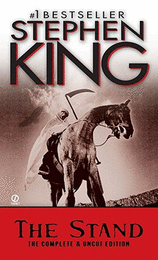One of the most intriguing things mentioned in your book is the surprising relationship between the writings of Shakespeare and pioneers of the American West. Can you tell your readers a little more about this? Why were cowboys so fascinated with the Bard?
In the nineteenth century American West, Shakespeare hadn't yet become Literature with a capital, elitist "L." He was simply the best storyteller out there. His popularity is actually less of an oddity than it might seem—it's a holdover from earlier periods, all the way back to Shakespeare's day, when his plays belonged to everyone, fro m the King down to the lowliest London apprentice ducking out of work to stand in the Yard of the Globe with his mates, gaping up at the shenanigans unfolding on the stage.
m the King down to the lowliest London apprentice ducking out of work to stand in the Yard of the Globe with his mates, gaping up at the shenanigans unfolding on the stage.
In the American West, Shakespeare's stories tended to be heard, not read. If you'd had any schooling at all, you'd probably learned some long passages by heart, reciting them in front of everyone in the one-room schoolhouse—and listening to everyone else recite their passages. His language would not have seemed as foreign as it does now. If you'd ever been to church, you'd heard the rich poetic cadences of the King James bible, published in Shakespeare's day, read aloud. Very likely, someone at home read long passages from the same Bible aloud in the evenings and on Sundays too. Just about everybody knew the sound and feel of Shakespearean language on their own tongues.
Of course it helps, too, that Shakespeare's plays tend to be epic tales of love or war, their emotions sized XXL. Even his silliness tends to be outsized, sometimes literally, as in the comic character of jolly, rumbustious, drunken Sir John Falstaff. In thinking about Shakespeare's popularity among cowboys in particular, it's worth remembering that many of them were veterans of the Civil War. After the fighting stopped, they turned their backs on the cities and farms of their boyhood, choosing instead to wander professionally through vast, little-known, and often dangerous territory. (I sometimes wonder how many of them, brought forward in time, would be diagnosed with PTSD.) It's my hunch that the grandness of Shakespeare's stories—the cruelty, killing, laughter, and loving—just made sense to them. There's a tale of a Montana rancher reading Julius Caesar to his cowboys in the 1880s. When he finished the "dogs of war" passage, one of the top farmhands shook his head and said, "That fellow Shakespeare could sure spill the real stuff. He's the only poet I ever seen what was fed on raw meat."
In the Wild West, theater kept its sense of "play" longer than it did in the more sophisticated cities. Audiences felt free to cheer, boo, hiss, whistle, applaud, and throw anything from flowers to rotten eggs onto the stage during a performance. During the gold and silver rushes in California, Colorado, and Arizona, famous actors from New York and London would travel out to the roughest of boomtowns, because the enthusiastic miners paid well, often in gold: The actors could make as much in a week in the mining camps as they might make in a month in the cities. In the absence of professional actors, though, entertainment-starved people banded together for amateur performances. Thus in Texas, a young lieutenant named Ulysses S. Grant was drafted to play Desdemona in an Army production of Othello.
Failing the willing numbers for a performance, intrepid storytellers would take it on themselves to recount the plays as stories. After hearing from an Army officer that Shakespeare was the greatest author ever, in 1863 the mountain man Jim Bridger made his way to the Oregon Trail and found someone willing to trade a yoke of oxen for a volume of Shakespeare. As he was illiterate and had no interest in learning to read, he hired a boy to read the book to him. Thereafter, he became famous for entertaining fellow mountain men around campfires by reciting his favorite plays—especially Richard III—from beginning to end. Apparently, he liked to salt his Shakespeare with oaths of his own, just to see if anyone could tell which bits were Shakespeare and which were Bridger.
American pioneers liked Shakespeare because they liked his stories and they were comfortable with his language. Nobody had told them to sit still, be quiet, and show respect in the presence of the Bard. Nobody had held up Shakespeare under glass on a silver platter and said "Look, don't touch." Nobody had said, Must have college degree to appreciate, much less must have plummy upper-class English accent to speak aloud.
If anybody had said any of those things, they would likely have been chased out of town with a volley of rotten tomatoes.
.
has won three awards for distinction in undergraduate teaching at Harvard, where she taught in the History and Literature Program and directed Shakespeare for the Hyperion Theatre Company.
.
A: Without question, Vietnam. From a country that was a muddy, flattened, bloody, beleaguered hell hole … to the country it is today: flourishing, forward-looking and, almost incredibly, forgiving.
































